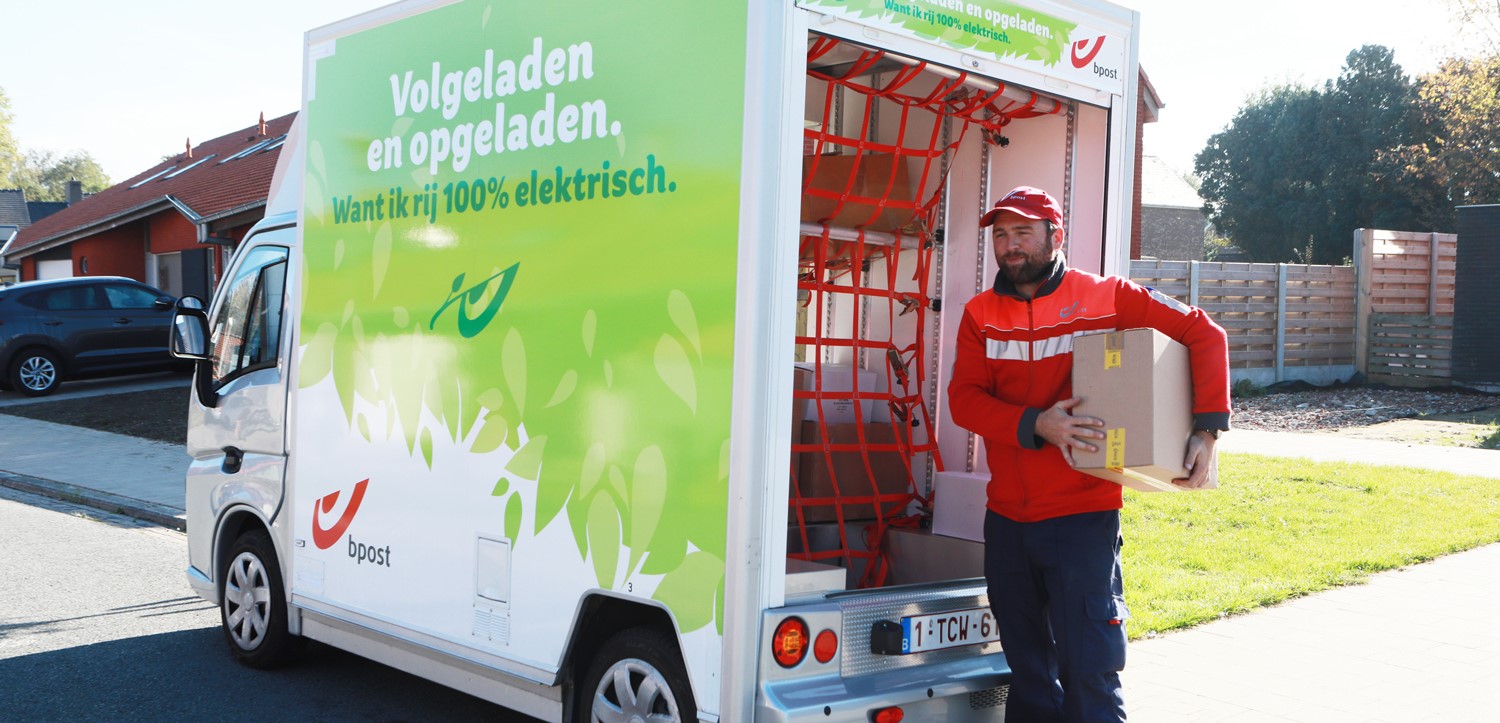
bpost Fleet Decarbonisation Strategy
Case Study
The Challenge
As part of their response to the Climate Emergency, the Belgian postal service (bpost) declared an ambition to reduce their environmental impact by at least 20% by 2030. In addition, bpost is setting up emission free city delivery network in Belgium, city by city. These ambitions entail a target for the transition of their last mile van fleet to a minimum of 50% electric by 2030 at the latest.
bpost has one of Belgium’s largest mail and package delivery fleets comprising small, medium and large vans, trucks, and mopeds, bicycles, and three-wheelers.
The fleet operates from distribution centres across Belgium, including urban to rural depots.
With such a wide variety of vehicles in use across a host of different usage condition the electrification of their van fleet could prove challenging.
To achieve their ambition, bpost gained the independent consultancy services of PwC and Cenex to develop a comprehensive electric vehicle and infrastructure strategy and deployment plan to identify:
- The ideal fleet mix for the future; by reviewing bpost’s goal to achieve a 50% electric last mile fleet by 2030 and creating a flexible, cost-effective deployment strategy that accounted for all low-emission technologies, and the impact of the introduction of low-emission zones within Belgian cities.
- The infrastructural solutions required to service the identified fleet mix by generating a long-term energy electrification strategy and energy supply vision.
Along with the above strategic advice, a decision-making model was to be created to allow bpost to further assess the wider business impacts of deploying low and zero emission vehicles, including the types and numbers of associated infrastructure, across all bpost sites for a range of different deployment scenarios.
The Development
Working in collaboration with PwC, Cenex (UK & NL) undertook a range of Belgium focused electric van and infrastructure market and technology research activities, including a review of the impacts associated with the growth of localised policies such as low emission zones and car-free zones. In addition, leveraging PwC’s previous analysis of the bpost fleet, a complete overview of their current fleet make up and related total cost of ownership (TCO) was created, enabling a cost comparison between diesel and electric vehicles to be undertaken.
The Cenex in-house Fleet Advice Tool was then used to calculate the potential energy consumption of equivalent electric vans to assess the daily energy needs of the future bpost fleet mix. The calculated energy consumption information was used to undertake an in-depth electric vehicle infrastructure analysis to assess the power and charging strategies required to optimise the number of chargepoints across the bpost depots. A future energy strategy was also developed to allow bpost to understand how to adapt the identified electric vehicle and building infrastructure to enable charging of vehicles on a large scale.
The Result
The research and analysis undertaken by Cenex was used by PwC to develop a simulation model, powered by Microsoft PowerBI, to enable bpost to continually review and assess the impacts of their decarbonisation plans through dynamic and flexible scenario modelling, with interactive dashboards showing the impact of different scenarios on both vehicle total cost of ownership and carbon emissions.
The analysis and resulting solution provided bpost with a simulation tool to calculate the cost and operational impact of an electrification of 0 – 100% of their last mile delivery fleet by 2030 and provided a path to a solution within the client budget and ambition level.
